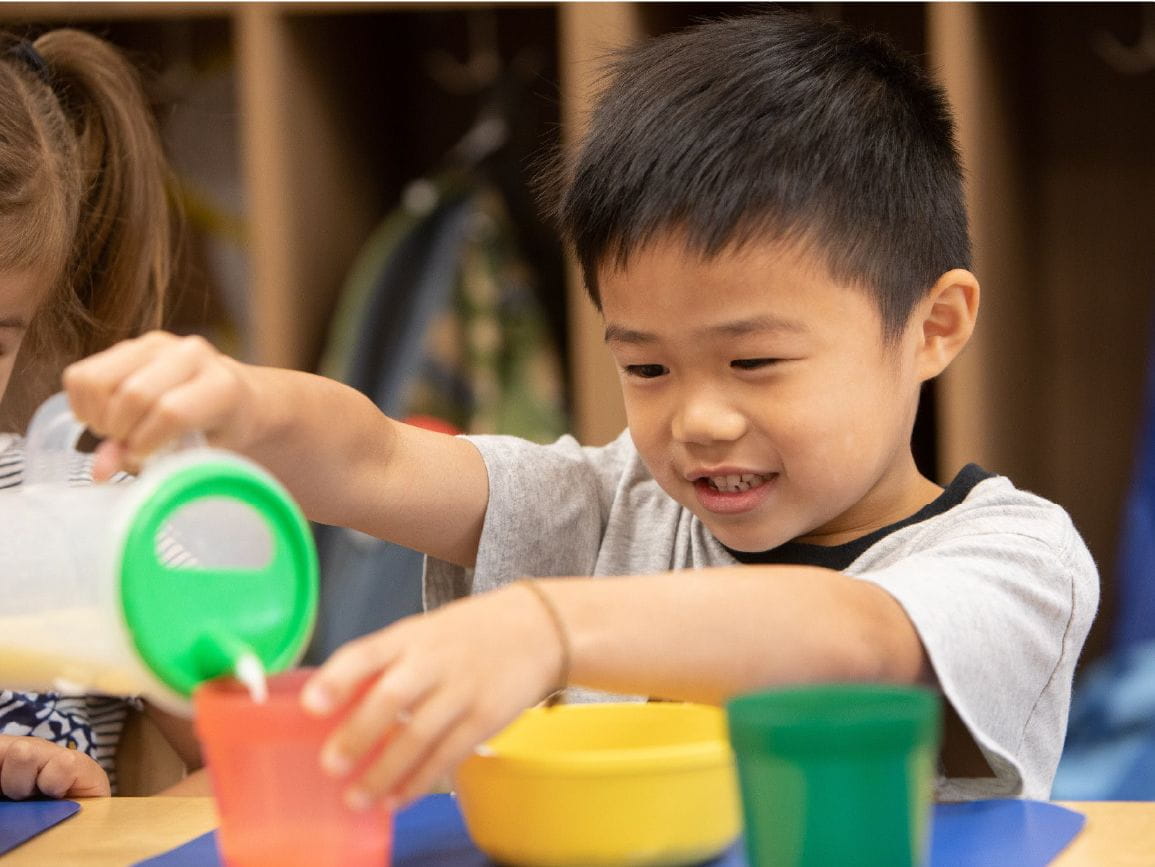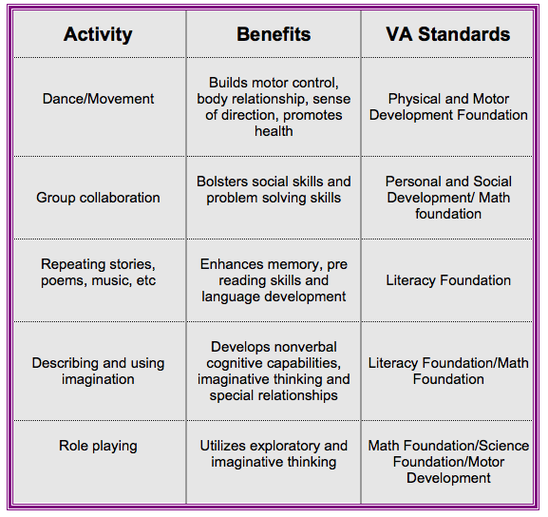Early childhood education is a critical investment in a child’s future. It provides children with the foundation they need to succeed in school and life. Children who participate in early childhood education programs are more likely to be successful in school, have higher incomes, and commit fewer crimes. They are also more likely to be healthy and have strong social skills.
At kienhoc.vn, we believe that every child deserves access to quality early childhood education. We provide a variety of resources to help parents and caregivers learn more about the importance of early childhood education and find the right program for their child.

What is Early Childhood Education?
Definition of Early Childhood Education
Early childhood education (ECE) is the formal instruction and care of children from birth to age 8. It encompasses a wide range of services, including preschool, kindergarten, and child care. ECE programs provide children with the cognitive, social, and emotional skills they need to succeed in school and life.
Goals of Early Childhood Education
The goals of ECE vary depending on the specific program, but they generally include:
- Promoting children’s cognitive development
- Enhancing children’s social and emotional skills
- Preparing children for success in school
- Fostering children’s cultural awareness
Benefits of Early Childhood Education
Research has shown that children who participate in ECE programs are more likely to succeed in school and have higher incomes as adults. They are also more likely to be healthy and have strong social skills.
Importance of Early Childhood Education
The early years of a child’s life are critical for their development. ECE programs provide children with the foundation they need to succeed in school and life. They help children develop the cognitive, social, and emotional skills they need to be successful learners and productive members of society.
The Role of Music in Early Childhood Education
Music is an important part of early childhood education. It can help children develop their language skills, creativity, and social skills. Music can also be used to teach children about different cultures and traditions.
| Type of ECE Program | Age Range | Focus |
|---|---|---|
| Preschool | 3-5 years old | Preparing children for kindergarten |
| Kindergarten | 5-6 years old | Preparing children for first grade |
| Child care | Birth to 5 years old | Providing care and education for children |

The Importance of Early Childhood Education
Cognitive Development
The early years of a child’s life are critical for their cognitive development. ECE programs provide children with the foundation they need to succeed in school and life. They help children develop the cognitive skills they need to learn, such as problem-solving, critical thinking, and creativity. Children who participate in ECE programs are more likely to be successful in school and have higher incomes as adults.
- Early Math Concepts for Young Learners
- Language Development in Early Years
- Creative Arts in Early Childhood
| Cognitive Skill | Description |
|---|---|
| Problem-solving | The ability to identify and solve problems |
| Critical thinking | The ability to analyze information and make judgments |
| Creativity | The ability to generate new ideas and solutions |
Social and Emotional Development
ECE programs also help children develop their social and emotional skills. They learn how to interact with others, resolve conflicts, and express their emotions in a healthy way. Children who participate in ECE programs are more likely to be successful in school and have strong social skills as adults.
- Social Skills in Early Childhood
- Developing Emotional Intelligence in Kids
- Managing Transitions in Early Childhood
School Readiness
ECE programs help children prepare for success in school. They learn the academic and social skills they need to succeed in kindergarten and beyond. Children who participate in ECE programs are more likely to be successful in school and have higher incomes as adults.
- Early Literacy Development
- Introduction to Early Childhood Curriculum
- Technology Integration in Early Learning

Types of Early Childhood Education Programs
Preschool
Preschool is a type of early childhood education program that typically serves children between the ages of 3 and 5. Preschool programs provide children with a variety of learning experiences, including:
- Language and literacy development
- Math and science exploration
- Social and emotional development
- Physical activity
- Creative expression
Preschool programs can be found in a variety of settings, including public schools, private schools, and community centers. Some preschool programs are full-day programs, while others are half-day programs. The cost of preschool varies depending on the type of program and the location.
| Type of Preschool | Age Range | Focus |
|---|---|---|
| Public Preschool | 3-5 years old | Preparing children for kindergarten |
| Private Preschool | 3-5 years old | Providing a variety of learning experiences |
| Community Preschool | 3-5 years old | Providing affordable preschool education |
Kindergarten
Kindergarten is a type of early childhood education program that typically serves children between the ages of 5 and 6. Kindergarten programs provide children with the academic and social skills they need to succeed in first grade. Kindergarten programs typically include:
- Language and literacy development
- Math and science exploration
- Social and emotional development
- Physical activity
- Creative expression
Kindergarten programs can be found in a variety of settings, including public schools, private schools, and community centers. Most kindergarten programs are full-day programs. The cost of kindergarten varies depending on the type of program and the location.
Child Care
Child care is a type of early childhood education program that provides care and education for children from birth to age 5. Child care programs can provide a variety of services, including:
- Basic care, such as feeding, changing diapers, and bathing
- Educational activities, such as playing games, reading stories, and singing songs
- Socialization opportunities, such as playing with other children
Child care programs can be found in a variety of settings, including homes, businesses, and community centers. Some child care programs are full-day programs, while others are half-day programs. The cost of child care varies depending on the type of program and the location.

Benefits of Early Childhood Education
Cognitive Development
Research has shown that children who participate in early childhood education programs are more likely to succeed in school and have higher incomes as adults. They are also more likely to be healthy and have strong social skills. ECE programs help children develop the cognitive skills they need to learn, such as problem-solving, critical thinking, and creativity.
| Cognitive Skill | Description |
|---|---|
| Problem-solving | The ability to identify and solve problems |
| Critical thinking | The ability to analyze information and make judgments |
| Creativity | The ability to generate new ideas and solutions |
Early Math Concepts for Young Learners
Social and Emotional Development
ECE programs also help children develop their social and emotional skills. They learn how to interact with others, resolve conflicts, and express their emotions in a healthy way. Children who participate in ECE programs are more likely to be successful in school and have strong social skills as adults.
- Social Skills in Early Childhood
- Developing Emotional Intelligence in Kids
- Managing Transitions in Early Childhood

Final Thought
Early childhood education is an essential investment in our children’s future. It provides them with the skills and knowledge they need to succeed in school and life. If you are a parent or caregiver, I encourage you to learn more about the importance of early childhood education and find a program that is right for your child.



